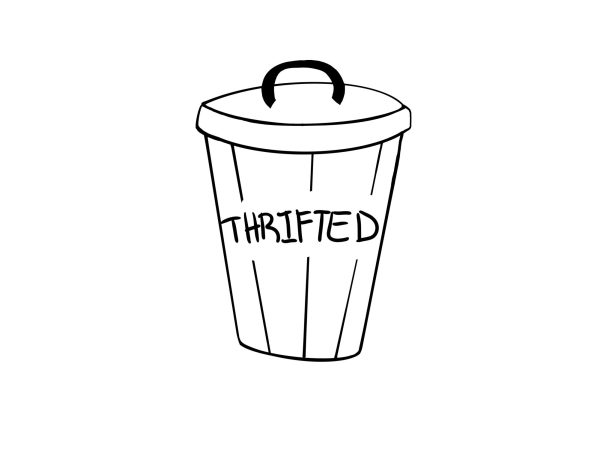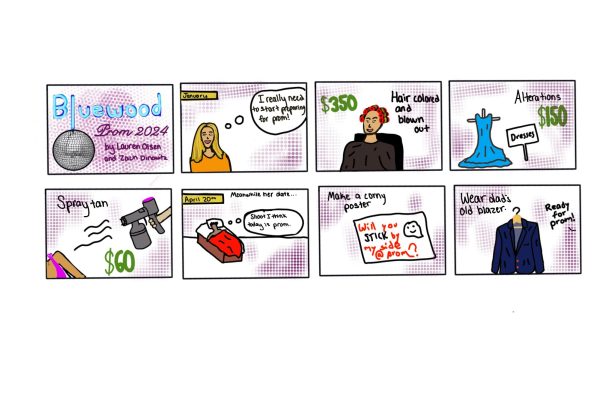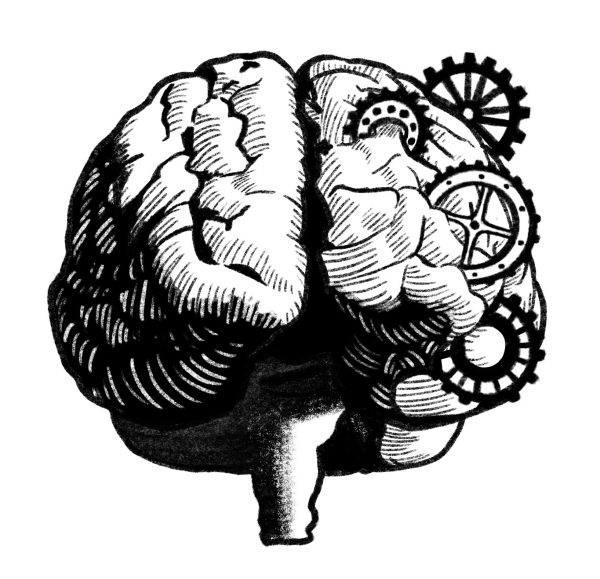Don’t bug out about eating bugs
October 8, 2021
Around the world, people are constantly screaming at each other to be more environmentally conscious, and they often argue that we should cease drilling for oil or stop monstrous corporations from polluting our precious air. However, many are unaware that one of the most pressing environmental issues is none other than the meat in our everyday meals. In order to prevent climate change, save ecosystems all across the world, bring an end to pollution and protect our deteriorating ozone layer, we need to stop eating ground beef on our tacos and replace it with weevil (worm-like grubs) larvae.
Now, I know what you are thinking — either I’m trying to make a bad practical joke or I’m a crazy vegan about to preach to you for hours, rattling on about how slaughtering animals is inhumane. Well, this piece is neither. Just three months ago, I was smothering my Double-Doubles at In-N-Out Burger with their signature Spread, rolling my eyes at anyone trying to lecture me about the dangers of meat. I was happy to endure high cholesterol or an increased risk of cardiovascular disease as long as I ate my T-bone steak in peace. However, due to recent experiences, my mindset has shifted.
Over the past summer, I went to Ecuador with my family. Venturing through the thick of the Amazon, I had the luxury of being treated to a mid-day meal by the Añangu indigenous tribe. Given that these empathetic people want to preserve the environment that had blessed them with a wide variety of resources for centuries, weevil larvae are often their daily protein, as they are large, incredibly abundant and tasty. So, coinciding with their traditions, they served us grilled larvae as the centerpiece of our meal. Although I was skeptical to begin — my hands were nervously shaking as I raised the bug to my mouth — the first bite of the succulent insect was heavenly, and my jumping taste buds were yearning for more. The burst of flavor swirling around in my mouth was similar to honey-smoked bacon, but somehow better. And don’t take that statement lightly because bacon is one of my favorite types of meat, and I could never imagine another food dethroning it.

So why am I writing about this? What makes this topic so important? To explain it concisely, producing livestock meat is incredibly inefficient, given that beef has an energy input to protein output ratio of 54 to 1 (pork has a 17 to 1 ratio and eggs have a 26 to 1 ratio). Insects, on the other hand, have a ratio of 4 to 1. So what do all these different numbers mean? According to a 2013 study conducted by the Food and Agricultural Organization of the United Nations, these numbers imply that switching to a bug-based diet could solve our world hunger issue. They concluded that the amount of food used to feed our American livestock would be enough to feed 800 million people. Additionally, the eight billion livestock animals grown in the U.S. use half of the water consumed in the country. Because insects require less water and food per kilogram of edible meat, the world could produce enough bugs for everyone, and reduce the amount of resources used for our protein.
To further the idea of insects as our primary protein source, we must face some heart-wrenching statistics. Factories in the U.S. produce a staggering two tons of carbon dioxide (CO2) daily. However, the methane that cows produce every day is equivalent to about 9,362,096 tons of CO2. Our diminishing ozone and rising temperatures urge us to change so that we can ensure our atmosphere is breathable 25 years from now.
Additionally, cows defecate 335 million tons of dry matter per year, polluting our water supplies and making places smell absolutely atrocious. Conversely, our environmental friends – insects – have frass (poop) that contains all the usual nutrients you’d expect from good manure, including nitrogen, phosphorus and potassium. In fact, according to a 2019 study published in the journal Applied Soil Ecology, certain insects produce frass that possesses extraordinary content, which can help plants tolerate abiotic or non-living stressors such as increased temperature, drought or flooding.
Within the state of California, we can already witness that our livestock is unsustainable, as they are cultivated and slaughtered in brutal conditions. Animal lovers and organic food enthusiasts wouldn’t stand for their treatment and rallied behind a 2018 animal welfare state proposition that requires more living space for the animals; unsurprisingly, they won. Additionally, Hatamiya, an economic, strategic and business advisory consulting firm, predicted in a study that bacon prices will soar by 60 percent. I realize a pig’s behind (ham) is tasty, but is it worth extremely high prices and inhumane animal treatment when larvae taste just as good (to some even better)?
With the overwhelming positives eating bugs brings, you may be wondering why more people haven’t started on this path to salvation. It’s for the same reason that you haven’t dropped this paper and sprinted to the nearest grocery store in hopes of laying your hands on a delicious critter. Quite simply, we all think bugs are nasty. I definitely do. If a creepy crawler had invaded my room right now, I would assume they had malicious intent and would whack them to death with any holdable object in my line of vision. Because humans inherently find divine insects disgusting, I have assembled three viable solutions to help us switch our diets. One, we suck it up and swallow all future meals with our eyes closed while imagining that the meat in front of us is beef, pork or chicken. Two, like several restaurants in California and Las Vegas, insects could be hidden in patties or other meat forms, making them invisible to the naked eye; with this, humans would hopefully be unaware that their protein is a terrifying bug with antennae. Three, if the current Western generation is so violently grossed out by the idea of having a different animal on the dinner table, the actual transference to bug-based diets could instead occur in the near future. If we are able to change the stigma around bugs and the next generation can spend their childhood understanding bugs are a healthy, viable food option, we would be able to develop a world that embraces the creepy crawlers and looks at them not as yucky but as a vital commodity for saving the Earth from its increasingly gruesome outlook.
I genuinely believe that as long as our future generations are not eating flies and mosquitoes off the wall like frogs, an insect-based diet will be the most impactful change to humanity since the agricultural revolution.























